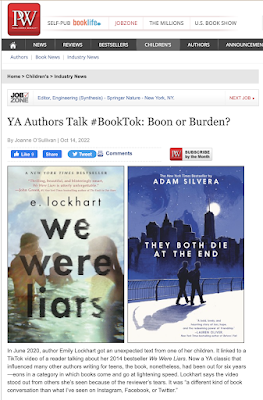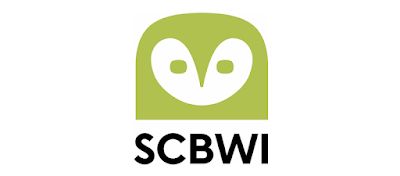This month, all my posts have been about community, so I thought it would be nice to wrap my guest appearance up by talking about loneliness. This comes on the heals of Lee's post two days ago, Talking #BookTok and the pressure to "perform" on social media.
Sometimes, even when we have a writing community to rely on, writing can be lonely. There are many reasons why we might feel isolated despite not being alone, including:
- Feeling the need to guard our story concepts and manuscripts for fear of having our work stolen
- Feeling like an imposter because we are not published, agented, an English major, or popular in writing circles
- Struggling to "get a word in edgewise" on busy forums and social media discussions
You may be able to relate with this, or perhaps you relate to another item on the list. Maybe you want to participate in pitch parties (like today's #pbpitch), but you fear someone will see your pitch and duplicate its concept. Or perhaps you don't feel like you have much to contribute to a conversation about writing because other writers seem more advanced.
Sometimes, the loneliness can cause us to overcompensate. In order to make sure we don't miss anything, we attend every webinar we can find, and join every group we can afford. We stretch ourselves thin to the point of physical, intellectual, and creative exhaustion and forget why we did it all to begin with: to become better and/or more productive writers. And as the exhaustion sets in, we retreat, starting the cycle all over again.
Whatever the source of your creative loneliness, I'm here to tell you that it's okay to exist within or without the writing community in whatever way works for you. The right writing community will be waiting when you return if you need a break. They'll understand if you don't join in on every event. They'll fill you in when you feel a little left behind.
When the fear of missing out (FOMO) kicks in, remember that it is physically impossible for you to be everywhere and see everything. That's one of the great things about having a writing community: everyone has their own experiences to contribute. One person might be able to share some of the things they learned at the last conference. Another might have heard something cool on a writing podcast you haven't had time to catch up on. Another might have gained a new perspective on a book issue during a social media discussion.
The next time you feel lonely, but the idea of participating in x is a little overwhelming, remember it's okay to exist on the periphery of the writing community when and for however long you need to.
We're not going anywhere and we will provide you with a soft space to land whenever you decide to make your approach.
Jes Trudel a Canadian author, editor, and instructor based in Timmins, Ontario. She has written and presented for various outlets, including Children's Book Insider, SCBWI, 12x12 Picture Book Challenge, and BoldFace. Jes founded WritingCommunity.ca.









